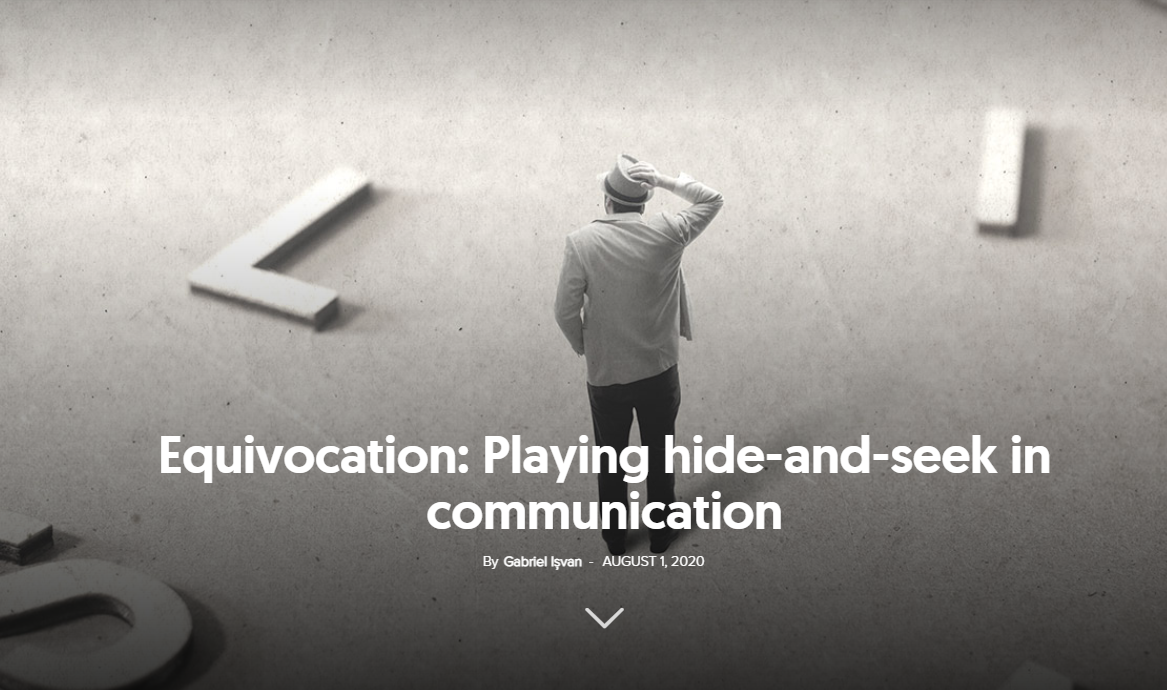The portrait of a good listener contains skills that are formed over time, through an honest interaction with others, motivated by the desire to understand and help them.
If I’d received a penny every time I heard or read that well-being in a relationship is based on communication, today I would certainly have owned a considerable amount of money.
There is no book, psychologist, or life experience that excludes the importance of communication from the list of ingredients for a successful relationship with family, friends, and co-workers. However, although we often talk about it and even practice it like breathing, communication involves a series of qualities that do not appear out of the blue, overnight, but develop over time and, above all, intentionally. That is, they involve planning and effort, trial and error, and adjustments as you go.
One of the main components of communication is the ability to listen. Not only to hear—in their entirety—the phrases spoken by the interlocutor, but to penetrate beyond the words, at the level of the nonverbal message, with its subtle meanings.
Listening requires a lot of work. It is not easy, but it is not impossible to be a good listener.
The biggest obstacles to listening stem from the slippage of communication patterns that many of us exhibit, showing prejudice, disinterest, lack of empathy, or even superiority in our dialogue with others.
Over time, communication problems prevent us from making real connections with others; they distance us from people. A good listener is one who stays in touch with people, proving skills that, although trivial at first glance, are not so easy to put into practice.
A good listener is attentive
It goes without saying that in order to be able to communicate effectively, we need to pay attention to what we are being told; to observe this basic communication rule. Maintaining focus proves to be an increasingly bigger challenge for modern man. Overexposure to visual and auditory stimuli that technology serves us at every step weakens our ability to keep our attention on the same thing for a longer period of time. In addition, the dependence on technology decreases our availability of paying close attention to what is happening around us. Smartphones are the first things that divert our attention, but also the involvement in the present moment.
According to a study quoted by aarp.org, Americans check their phone 2,617 times a day. However, the tendency to stay connected is just as strong regardless of nationality, with consequences on all fronts: it distracts us from the immediate reality, decreases productivity, and creates anxiety.
An experiment in Chicago shows that pedestrians using their phones while travelling did not notice the “free” money hanging from a tree within their sight. Another study conducted at the University of Hokkaido, Japan, found that the mere presence of a smartphone near the owner influences their performance while performing intellectual tasks, and the American Psychological Association warns that the need to constantly check the phone means more stress and less concentration.
The need to constantly check your phone affects the quality of face-to-face communication.
In order to become good listeners, we need a controlled behaviour that keeps us anchored in the reality of direct relationships that happen here and now. At the communication level, this translates into drawing simple rules, which can help us keep our focus in the right direction (when we are in the middle of a conversation, we only answer urgent calls, we do not pause to check our inbox, Facebook, or Instagram, etc.).
A good listener does not interrupt
We all want to be heard when we speak, and certainly no one likes to be interrupted. Nevertheless, the habit of interrupting the interlocutor is common, and is usually used to redirect attention to oneself. If a colleague talks about the morning meeting, we intervene to tell them a similar context which we experienced. If the neighbour complains that they had a flood, we immediately inform them that we too have gone through the hardships of this torment.
Linking what the interlocutor says to similar events which we experienced ourselves is a natural tendency. Used in excess, however, the sharing of personal experience, meant to create familiarity, can leave the other with the feeling of restricting their right to expression or of minimising the importance of the transmitted message.
Patience in a dialogue shows that we respect our conversation partner, that we do not disregard their words and what lies behind them—their willingness to share with us information, thoughts, or feelings which they consider valuable and worth mentioning.
A study conducted at the George Washington University shows that men tend to interrupt female conversation partners more often than male ones. Differences also occur depending on other characteristics of the dialogue participants (age, status, type of relationship, and interaction, etc.).
What is certain is that we all (or almost all) interrupt our interlocutors and do so without realising the gravity of the situation, for various reasons: either because we learned this faulty model in the family, because we want to take control of the discussion, or we are excited about the topic and want to contribute, without hesitation, with our own thoughts and ideas.
There are also contexts in which we can intervene diplomatically: requesting additional details, in case of vagueness in speech, making sure that we understood the message in ambiguous situations or leading the discussion on the original path, in case of deviations from the subject. If, on the other hand, we intervene to move the spotlight onto ourselves, we run the risk of appearing uninterested or even self-centred.
Interruption is often a specific tactic of emotionally abusive people who use the power of the word to exercise control over people and/or important situations. At other times, although it lacks a major psychological stake, it has the ability to—through repetitiveness—alter any balanced exchange of information.
How do we know when our interrupting is bothering others? Obviously, by noticing the signals sent by the interlocutor. Their nonverbal language can serve as a guide for good listening practice.
A good listener asks the right questions
Although they must not interrupt, a good listener should not be silent, but should ask the right questions, the kind of questions that urge reflection. According to research based on the behavioural analysis of over 3,000 participants in a professional development program for managers, one of the qualities of people who know how to listen is the ability to listen actively.
The concept, popularised by American psychologists Carl Rogers and Richard Farson in 1957, refers to a wide range of behaviours and attitudes addressed in a conversation: lack of value judgments, providing verbal and nonverbal feedback, adapting to the interlocutor’s pace, a desire to understand any ambiguities, etc.
Beyond all the forms it takes, the core of active listening is asking questions that lead to revealing conclusions. In his New York Times article, Adam Bryant, the CEO of a mentoring company, invokes an intriguing saying in this context: It’s better to be interested than interesting.
In the same vein, a good listener knows that they have something to learn from every person they come in contact with, and use their curiosity to bring the valuable things to the surface, to question, constructively, prejudices and old assumptions, both about oneself and about one’s dialogue partner.
Such communication follows the path of collaboration, as opposed to a verbal competition in which everyone tries to impose their point of view. A two-way communication turns the conversation into a pleasant, positive experience, free from criticism and indifference, but rich in suggestions that explore alternatives.
The above-mentioned research also shows that people tend to accept the suggestions of active listeners more easily than the recommendations from passive or combative listeners, who either do not show interest during the conversation or do it just to disprove what they are told.
Questions that encourage sincere statements are open-ended, clarifying, non-intrusive, and specific questions that are asked within the limits set by the person making the disclosure.
A good listener does not stop here
The qualities of a good listener do not stop here. Included in this category are people with an altruistic motivation to interact with others—people who strive to create a climate of trust, use their experience in favour of the interlocutor, do not rely on labels, do not absorb energy, but offer it, always learning from the people they interact with.
Seemingly intangible, the portrait of the “ideal” listener contains skills that are formed over time, through an honest interaction with others, motivated by the desire to understand and help them.
Genia Ruscu, 35 years old, graduated from the Faculty of Sociology and Social Work at the University of Bucharest and works in the field of protection of persons with disabilities, recognising every day the importance of self-motivation as an essential element for self-development.




















